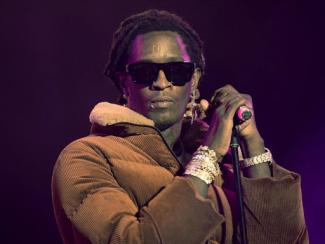
While incarcerated from 2022 to 2024 on RICO charges, rapper Young Thug conducted plenty of conversations that have now been leaked. Cobb County officials banned open-records requests for his calls after the fact. But the viral calls have implications that go way beyond Thug.
For one, it isn’t just jail calls. Remember when former NSA contractor Edward Snowden leaked classified documents exposing global surveillance programs? The government buys consumer data scraped from phones, social media, and the internet for policing, military intelligence, and immigration. ICE has access to Israeli spyware that can hack phones and encrypted apps.
Second, prison calls are an industry. ViaPath and JPay dominate the market. According to Prison Policy, “prisons and jails profit by granting monopoly telephone contracts to the company that will charge families the most.” Even when calls are free, corporations and the state profit from other services, like money transfers.
Lastly, there’s a larger historical picture. While the FBI once aimed to “expose, disrupt, misdirect, discredit, or otherwise neutralize” Black revolutionaries by infringing on private information, civilians have struggled to access records that should be open to all, from police bodycam footage to police foundations getting around open records laws. Still, there’s hope: Atlantans resisting Cop City, for example, made history by forcing the Atlanta Police Foundation to release records exposing hidden lobbying, funding, and copaganda.
The surveillance state is already here. But moments in pop culture can be opportunities for action and awareness of the larger context we all live in.